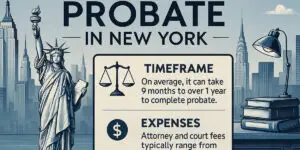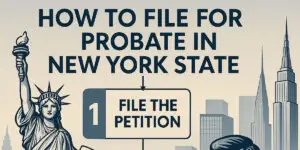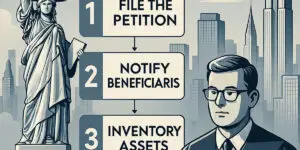Estate planning is a serious affair that requires the preparation of a few legal documents. These legal documents, which ranges from a trust, letter of intent, power of attorney, etc. all help to ensure the smooth transfer of assets from an estate owner to his or her beneficiaries. In addition, these documents designed to cater to the estate owner should he or she become incapacitated. For instance, the power of attorney, an important estate planning document, is a documents that helps the estate owner designate an individual (legal agent) who will make important financial decisions on his behalf when he is incapacitated.
Another important estate planning document is the last will and testament. Let’s take a closer look at what this document is.
What is a Last Will and Testament?
A last will and testament is a legal document that contains the wishes of the estate owner. That is, Instructions regarding his assets and beneficiaries. This legal document is used to indicate how the estate owner wants his assets to be managed and distributed after his or her death.
A last will and testament also contains the names of beneficiary of an estate, including the name of the estate executor. If the estate owner has little children, he or she could also include the names of guardians for the sake of the minors.
Disadvantages of not having a Will and Testament
When an individual kicks the bucket without a will, the person is said to have died intestate. This means that the state automatically becomes the executor of the estate. For instance, if a residence of Long Island dies without creating a will, the government of Long Island automatically becomes the executor of the deceased estate. Thus, in settling the estate, the state will choose how the assets will be distributed, including who gets payment first. This is usually done without any consideration for a family’s circumstances.
Any blood relative can decide to stake claim to the estate. In addition, the court can go ahead and establish guardianship arrangements for the children of the deceased. However, this is always meticulously done to ensure that the children are well catered to. In the event that a court feels that a will is not well drafted, it can deem it invalid. In that case, the settlement of the estate will be done according to the intestate law of the state.
How does a Last Will and Testament Works
A last will is drafted when an individual or estate owner is still alive and its instructions are executed once the person dies. In a will is the name of an executor who is a still-living person. The estate executor is charged with administering the estate. If the estate should enter probate, the executor will be in charge of the process.
A will and last testament are the core base of an estate plan and is a key instrument used to ensure that all regarding the estate is done according to the wish of the deceased. Worthy to note is that, there is more to an estate plan than just a will. A will is the document a probate court uses to guide the process of settling an estate.
Assets that are not already designated by a beneficiary, like life insurance policy or qualified retirement plan, are not added as probate assets and are transferred straight to the beneficiaries.
Precisely, a will and last testament give the court a clear insight into how the deceased wants his or her assets to be distributed, including who is to get them and what portion. This document make provision for guardian who are charged with catering to minors of the deceased.
Last will and Testament Attorney Buffalo, NY.
If you wish to create a last will and testament, you will need the help of a last will and testament attorney Buffalo, NY. A last will and testament attorneys Long Island are individuals who are versed in will and testament. These professionals can guide you through the process of creating a will that mirrors your wishes. And in the event that you need an advice, they are up to the task.








